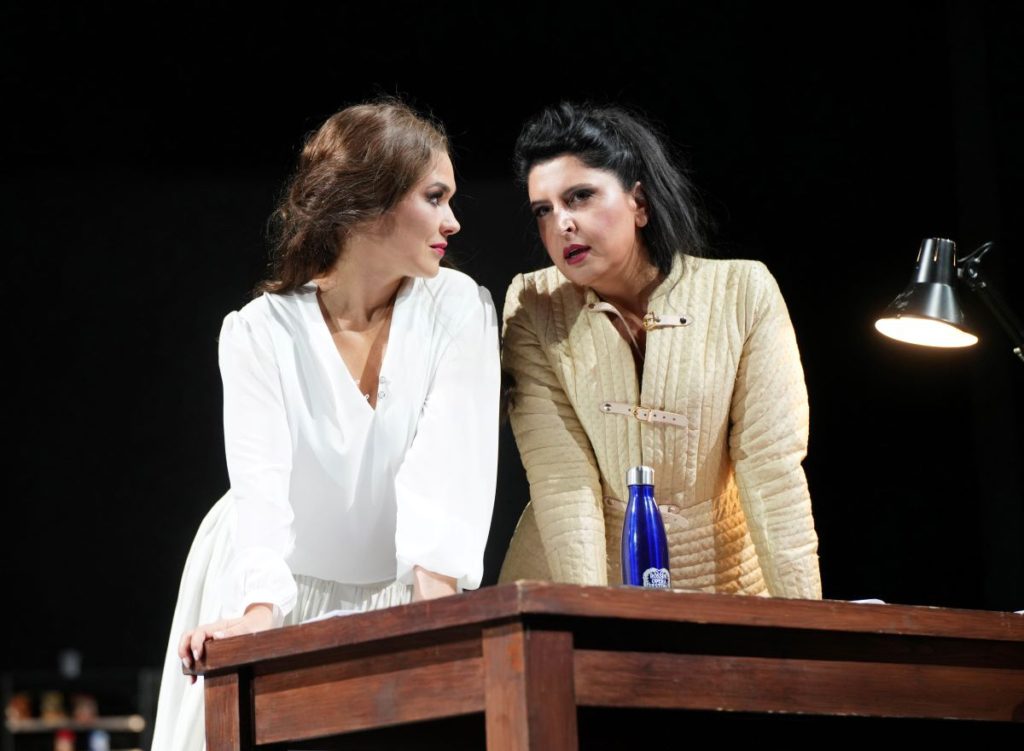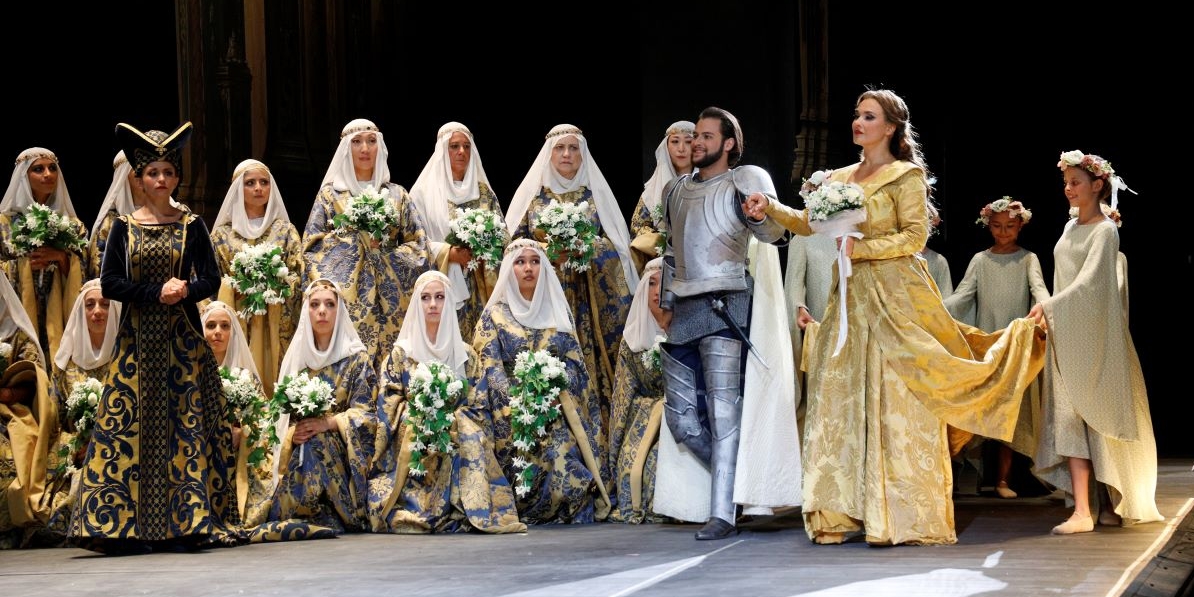Rossini’s 23rd opera, composed under frantic time restraints, for the Carnival season in 1817, followed several 1817 triumphs – Cenerentola, La Gazza Ladra and Armida, yet Adelaide had a lukewarm reception – critics said the great Rossini composed it in his sleep! Undaunted, Rossini got his revenge by taking nine numbers for Eduardo e Cristina in 1819, which was a great success. The overture is ‘borrowed’ from Cambiale di Matrimonio, with a few alterations.
Adelaide is based on historical Italy in 950. Berengario poisoned Lotario, King of Italy, who tries to force Lotario’s widow Adelaide to marry his son, Adelberto. Adelaide asks Otto the Great (Ottone) of Germany for help: they fall in love, Otto conquers the short-lived Kingdom of Italy, defeats Berengario, marries Adelaide and they return to Germany. It is full of beautiful music, Rossini using lyrical moments to emphasise emotions and express the triangle of passionate love and rivalry between Adelaide, Ottone and Adelberto, all roles requiring an extraordinarily extensive range.
Adelaide is bel canto in its purest form and Rossini liked it so much, he recycled much of it in subsequent operas. There are numerous musical high points – ‘Lasciami: in te del padre’ (trio); soffri la tua sventura; Occhi miei piangesti assai; della tua patria ai voti; Adelaide mi ravvisa; vanne ed alme ricordati; scorda I passi affanni.
Continuing the flourishing renaissance of Rossini’s lesser-known operas, conductor Alberto Zedda, revived Adelaide in 1984 in Itria, and Pesaro in 2006; this is a revival of the new 2011 Pesaro production.
Bernaud set Adelaide is in progressing rehearsal stages culminating in full sets and costumes, with off and on-stage drama. I loved this approach, because having been through all those dramas, it shows the public things that go wrong. The set is an empty stage, the sides are the wings, dressing rooms, vending machine, make-up and props, rehearsal piano and pianist.
The first unexpected drama was that conductor, Francesco Lanzilotta, broke his foot in a motorcycle accident and was replaced by Enrico Lombardi, assistant conductor at the last moment, and did a great job ensuring that all went smoothly.
During the overture, enter star tenor (Adalberto) to disappear into a (visible) dressing room to have a fling with a dancer, hotly pursued by his star soprano wife/girlfriend (Adelaide); they have a row. He spends the rest of the opera on and offstage trying to placate her. She is comforted by the mezzo (Ottone). Personal emotions spill into the opera. Adelberto is podgy, unattractive and older than his slim attractive stage father, bass Berengario who arrives at each rehearsal with a different bimbo. Tenor forgets his lines and rushes to the rehearsal pianist to practice them, he forgets his sword on ‘ecco mia spada’, and rushes off to fetch it. Whilst stage stuff is going on, offstage characters complain about costumes, Otto rejects his boots, characters appear in cloak, bits of armour, Hawaii shirt and jeans. Ottone gets closer and closer on and offstage to Adelaide, and (spoiler alert) at the end, unties his hair, becoming a she and proposes to Adelaide, whilst a chorus member films it on his mobile! Rossini anticipated gender fluidity with all his mezzo pants parts!
The singing is top-notch.
Rossini composed the rondo finale for Otto as the noble heroic star role. Armenian mezzo Varduhi Abrahamyan is magnificent, dominating early in ‘oh sacra alla virtù’, showing her rich, powerful, warm voice, with a remarkable vocal palette.
Russian soprano Olga Peretyako, looking beautiful and diva-esque, as Adelaide makes the tricky score look easy. ‘Cinga la bella candida’ shows good coloratura, interesting variations, a warm voice with a lovely top.
Abrahamyan and Peretyako have good chemistry together, demonstrated in the duet ‘mi dai corona e vita’.

Mexican-American tenor René Barbara as Adelberto ‘Grida, o natura’ showed a lovely legato line, exciting tone, terrific top notes and a sense of humour.
Young Italian bass Riccardo Fassi as Berengario has lovely sonorous voice and a good future ahead.
Italian mezzo Paola Leoci as Eurice, Berengario’s wife did her best with her below-par (Rossini sleeping?) aria near the end.
This is a hugely enjoyable evening on many levels. It shows the public what goes on behind the scenes, and how a production progresses from nothing to the grandeur of the full set-and-costume last scene, as well as terrific music and highest quality singing.

